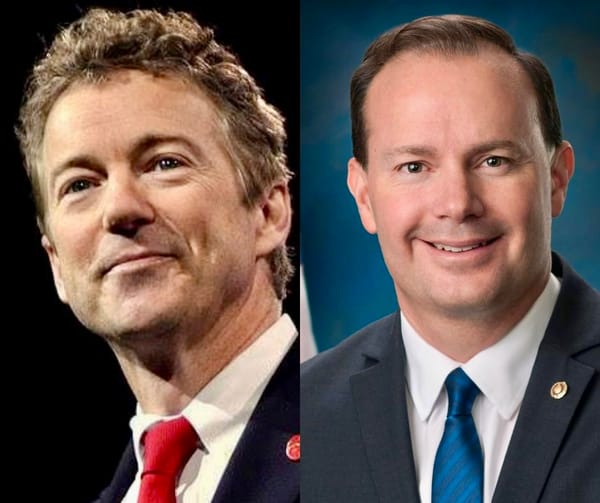Pentagon Funding Boosted Chinese Military Research, New Report Finds
Report casts further doubt on President’s decision to allow 600,000 Chinese students into U.S. universities

A recent House GOP report, titled “Fox in the Henhouse,” reveals that over a two-year span, the Pentagon funded about 1,400 research papers in collaboration with Chinese institutions—including many tied to China's military and technology sectors. These research efforts, collectively drawing in more than $2.5 billion in defense grants, raise fresh concerns over national security and oversight.
Many of the collaborating Chinese institutions appear on U.S. government “blacklists” for national security risks—but current Pentagon rules do not ban such ties. The research spanned sensitive areas like hypersonics, semiconductors, artificial intelligence (AI), advanced materials, quantum sensing, and propulsion systems, which could feed directly into military applications.
“American taxpayer dollars should be used to defend the nation—not strengthen its foremost strategic competitor,” the report states. It warns, “Failing to safeguard American research from hostile foreign exploitation will continue to erode U.S. technological dominance and place our national defense capabilities at risk.”
The report urges the Department of Defense (DOD) to bar funding for collaborations with blacklisted or defense-linked Chinese entities. It supports legislation from Rep. John Moolenaar (R-MI), which would restrict Pentagon funding for such research and penalize U.S. universities that run joint programs with Chinese partners on security watchlists.
In a related development, former President Donald Trump's announcement to allow 600,000 Chinese students into U.S. universities has ignited sharp criticism—especially among his MAGA base. His plan represents a dramatic increase over previous high points. For context, the 2019 peak stood at approximately 372,000 Chinese students in the U.S.
Despite pushback, Trump doubled down, arguing the influx supports university finances and diplomatic ties, and insisted it was not tied to any trade concessions.
But many MAGA voices label it a betrayal of an “America First” stance. Figures like Steve Bannon, Marjorie Taylor Greene, and Laura Ingraham voiced frustration, warning it could drain opportunities from American students.
Critics also argue that if American universities depend on a flood of Chinese students to keep their doors open, then the problem may lie with the schools themselves. Many say that higher education has priced itself into a bubble, producing far more graduates with elite degrees than the economy can absorb. This “overproduction of elites,” as historian Peter Turchin has described, has destabilized societies throughout history by creating a large class of credentialed but underemployed individuals prone to frustration and radicalism. Rather than expanding enrollment for foreign students to prop up broken business models, these critics insist that universities should focus on serving American families first, while trimming excess costs and scaling back programs that produce debt without opportunity.
What connects both stories is that increased academic openness, while promoting innovation and international engagement, also exposes U.S. research and education to risks many consider unacceptable.
The Pentagon’s funding of defense-sensitive research alongside Chinese military-linked institutions has alarmed lawmakers. The misuse of academic exchange channels can, some argue, chip away at American technological leadership.
At the same time, scaling up student visas for Chinese nationals—even under Trump’s justification of financial necessity and goodwill—seems to run counter to growing concerns about intellectual and ideological security. The timing of both developments heightens unease among security hawks.
Lastly, the “Fox in the Henhouse” report gives new impetus to a bill filed by a group of House Republicans in March of this year. The Stop Chinese Communist Prying by Vindicating Intellectual Safeguards in Academia Act of 2025 (Stop CCP VISAs Act, H.R. 2147) would bar all Chinese nationals from obtaining student visas—a move sparked by national-security concerns and a hardline stance toward ties with Beijing. Representative Riley Moore (R-WV) argued that allowing these visas is akin to inviting the Chinese Communist Party “to spy on our military, steal our intellectual property, and threaten national security.” However, the measure faces strong criticism from educators who argue that targeting students based on national origin runs counter to American values and risks harming academic exchange. Given that the Stop CCP VISAs Act was introduced following several cases of Chinese students being caught spying or stealing military secrets, such criticisms ring somewhat hollow.
A summary of the Fox in the Henhouse report, with links to the full report and its data is HERE.




